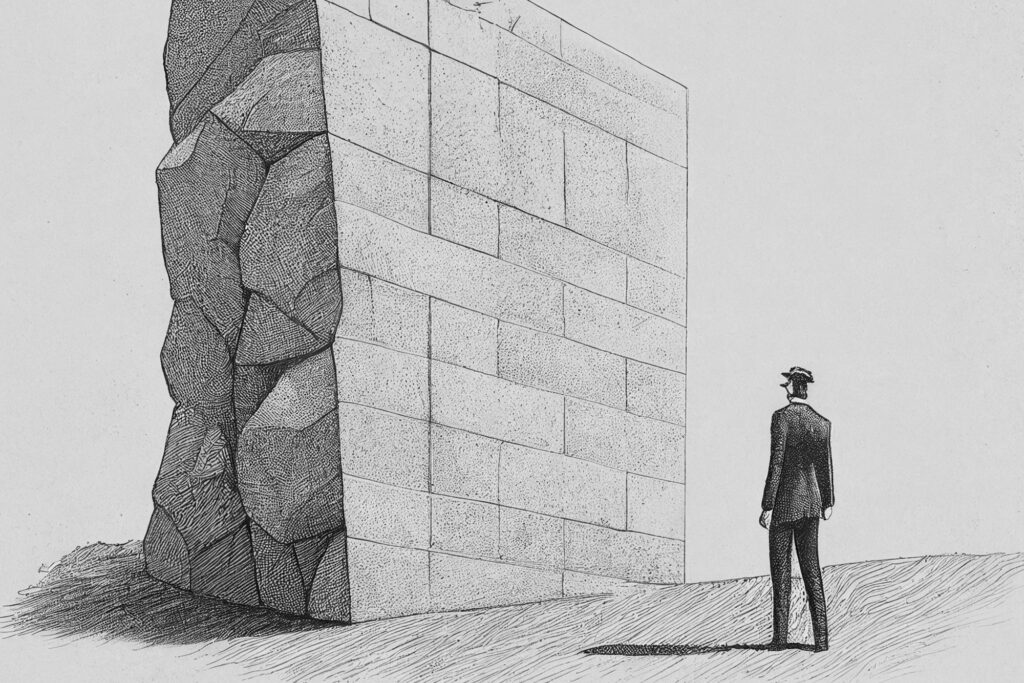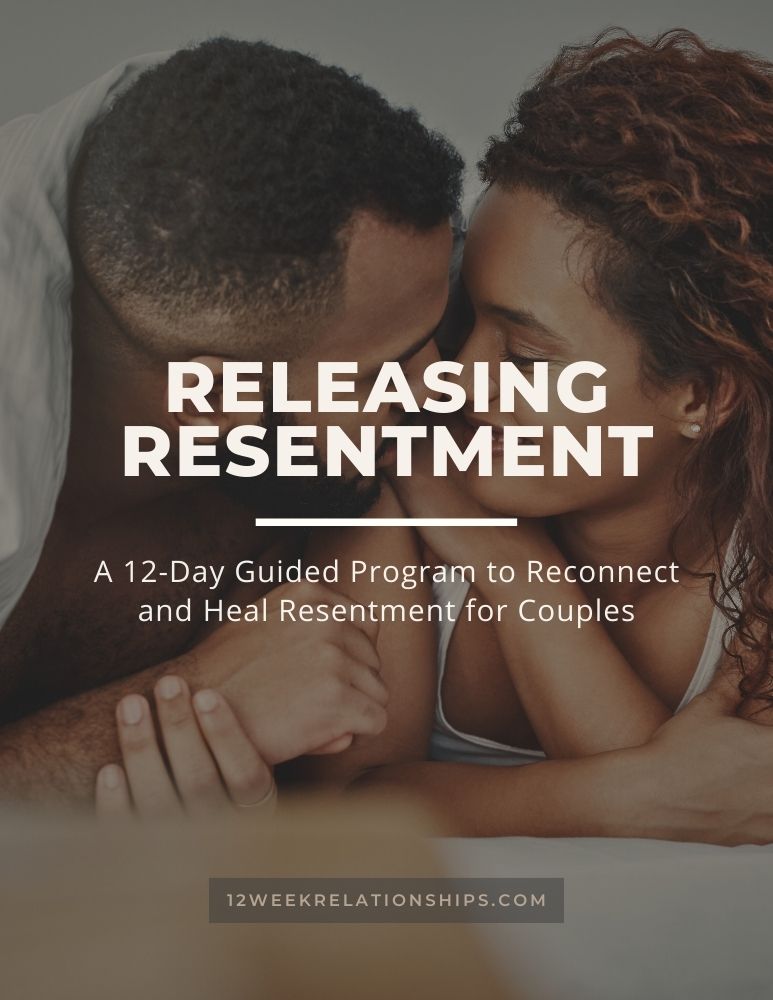What is Stonewalling? Stonewalling is a type of communication breakdown that can leave you feeling ignored, unimportant, or even dismissed altogether. Per research by the Gottman Institute, it's also one of the leading predictors of relationship failure and divorce. While it's a common relationship problem, it's essential for you to be aware of its impact in order to address it immediately.
To help give you a concrete idea of stonewalling, let's walk through an example:
Partner A: "I know we have had some challenges in our relationship and I have felt really disconnected lately. Do you mind if we just talk with no distractions?."
Partner B: Puts down their phone and answers in a frustrated tone, "There is nothing to talk about. Everything is fine."
Partner A: "I don't feel that way and I would really like to have a conversation with you about our relationship."
Partner B: (stares silently away from their partner)
Partner A: "This is really important to me. "
Partner B: (continues staring silently)
This is stonewalling.
It's a complete breakdown of the two-way nature of a relationship. One person shuts down or "stonewalls" by refusing to engage in conversation or address an issue at hand.
So let's dive deeper. Let's discuss the factors leading to stonewalling and explore how to stop it before it destroys your relationships.
Side note, while the information in this article is based on our research for couples' relationship coaching, the concepts we're about to discuss apply to ALL types of relationships.
Types of Stonewalling
The example above illustrates one type of stonewalling. But stonewalling can take on many forms...
Stonewalling is a...
- A parent who attempts to manipulate a child by giving them the "silent treatment."
- A spouse who walks away from an argument and leaves the house without saying a word.
- A coworker who refuses to speak after their bad behavior is brought to attention.
There are quite a few signs of stonewalling both behavioral and emotional. All of them are easy to detect so long as you know all the variations of stonewalling.
Here's a simple list of signs:
- Refusing to communicate
- Ignoring a question or topic
- Quickly changing the subject
- Withdrawing from a conversation
- Silent treatment
- Leaving the home without explanation
- Disengaging emotionally
- Defensiveness to all critique
Communication within healthy relationships can be described as a two-way street. When one person puts up a roadblock and shuts down one lane of relationship communication, this is stonewalling.
How someone might stonewall is of little consequence, it's still going to immediately damage the relationship dynamic.
That said, it is worth understanding that there is a difference between "active" versus "passive stonewalling.
Why Do People Stonewall?
First, people stonewall due to personal trauma. It's a survival mechanism that one learns (usually at a young age) that helps them cope with or even control stressful environments. In short, a person stonewalls because it's their way of avoiding pain (albeit a highly ineffective tool for doing so).
While there are many different types of stonewalling, there are two primary intentions behind the action
Let's begin with the concept of "passive" stonewalling.
Passive Stonewalling
Passive stonewalling is when someone shuts down due to a state of feeling overwhelmed. In these moments, the person will refuse to engage in a conversation, ignore their partner's attempts to communicate, and give minimally unhelpful responses. But this isn't out of an intentional desire to manipulate, it's usually because they're in a state commonly referred to as "flooded."
Being flooded means that from a psychological perspective, they're experiencing extreme feelings of anxiety or fear. When we're triggered, our nervous system takes over and we respond to the situation instinctually. We either fight, flee, or freeze.
In the case of stonewalling, it's the freeze response.
While the stonewalling behavior is still distressing for the relationship, it's not being done intentionally. The person that's stonewalling simply lacks the emotional development and tools to process the situation.
Then there's "active" stonewalling...
Active Stonewalling
Active stonewalling is when someone shuts down due to an intent to manipulate the relationship dynamic.
In these moments, the stonewalling behavior looks identical but the underlying motivation differs. They deliberately avoid the conversation, change the subject, or leave the room entirely. Maybe they stay physically present, but they give you the silent treatment.
Active stonewalling is employed to exert emotional control over the other person. Generally out of anger, a person stonewalls as a tool to manipulate the other person's behavior or perception of the situation. More specifically according to Lazarus (1991), anger is a response to an offense against “me or mine” and is thought to arise when one person has the experience of being slighted or hurt by the intentional acts of another person.
While active stonewalling is most certainly more sinister, they both carry the same negative effect on the relationship.
Effects of Stonewalling on Relationships:
As we've stated, stonewalling is devastating to healthy relationship dynamics. But let's specifically get into the WHY.
Let's assume that you're the victim. Upon bringing up an issue with someone close to you, they shut you out and stonewall you.
First, their stonewalling behavior creates an immediate lack of communication which leads to a breakdown of trust, intimacy, and connection. It signals to you what they're willing versus unwilling to discuss. Naturally this will often lead you to feeling frustrated, angry, and resentful.
Second, whether intentional or not, their stonewalling behavior makes you afraid to express certain thoughts or feelings. When you know they're going shut down, you simply don't bring up issues that are bothering you. You begin feeling like you need to walk on eggshells in everything you say or do.
This creates a dynamic where you begin to compartmentalize what can and can't be discussed. In order to keep the peace, you hide their true feelings. Another way to think of it is that you are essentially creating an inauthentic version of yourself just to avoid triggering the other person.
But this can only go on for so long because the question is...
How long can you bury your true thoughts and feelings?
How long until your resentment reaches an inevitable breaking point?
In short, when stonewalling continues, it puts the relationship on a one-way road that can only lead to critical failure.
The only question is how long you'll be driving on that road until you arrive at said destination.
How to Stop Stonewalling:
So how do you stop stonewalling?
Well, it requires both people to change their communication patterns.
The problem is that changing these communication patterns is one part communication, and two parts trauma and underlying pain.
Change not only requires that BOTH people are willing to commit, it also requires BOTH people to address the underlying emotional pain and trauma that's leading to the behavior in the first place.
When this is not possible, change is not possible. You can't stop someone from stonewalling if they can't see or aren't willing to change their behavior.
Going into the underlying pain and trauma is beyond the scope of this article. But from a communication standpoint, once you're both on the same page, here are some steps that can help:
- Take a break: Sometimes, taking a break and coming back to the conversation when emotions have settled can be helpful (especially in cases where one person is flooded).
- Set boundaries: Discuss what is acceptable behavior in communication and establish boundaries with your partner, then enforce those boundaries.
- Practice active listening: Active listening is when you focus on what your partner is saying and try to understand their perspective. Don't interrupt, even if they need time to communicate their thoughts.
- Communicate your needs: Clearly communicate your needs, thoughts, and feelings to your partner. Be kind in this process, but don't hold back or hide your true thoughts and feelings.
- Seek professional help: If stonewalling is causing significant problems in your relationship, consider seeking help from a qualified coach or therapist.
Conclusion:
Stonewalling is not to be brushed under the rug. It's a serious communication issue that can have dire consequences on relationships. By understanding the signs, reasons, and effects of stonewalling, couples can take steps to address it before it destroys their connection.
Related Media
For more insights, see some of the related media below.











